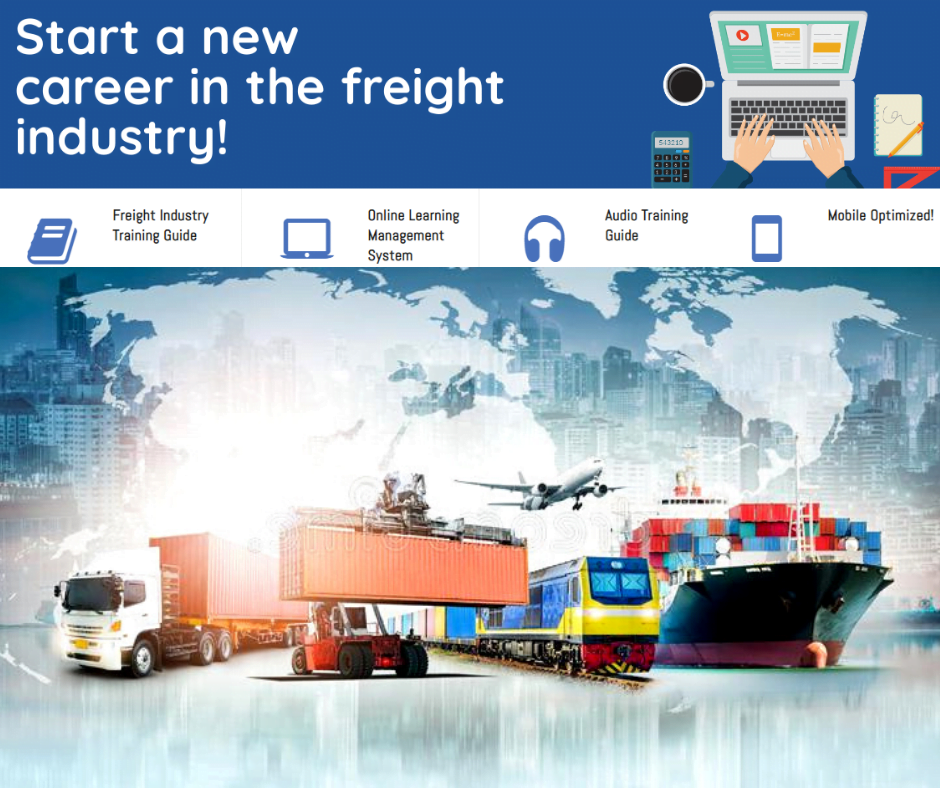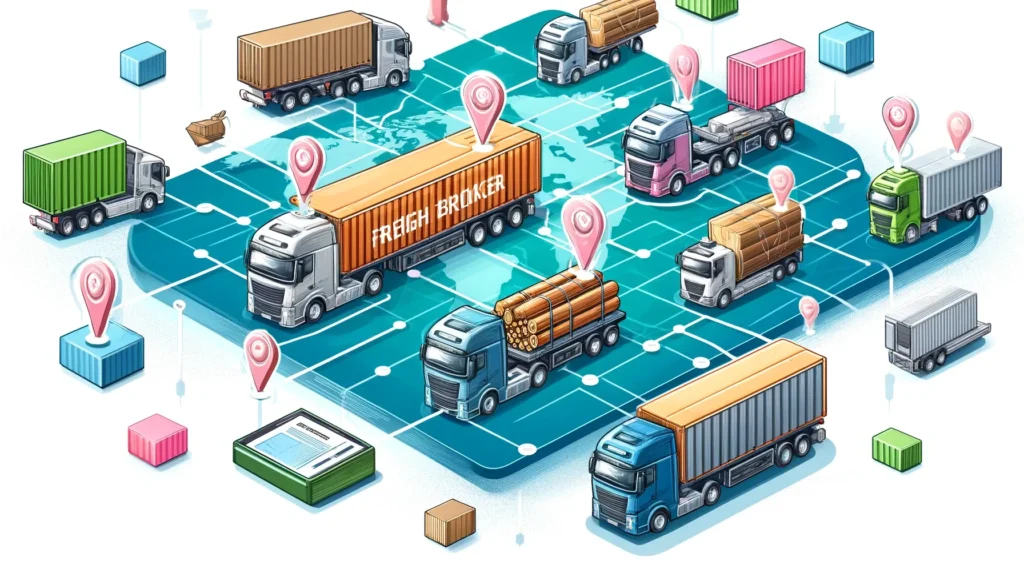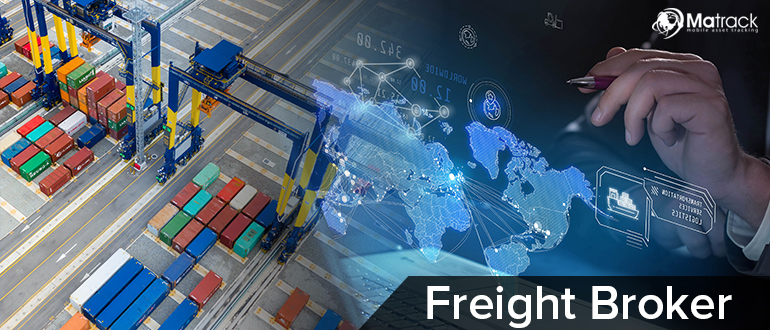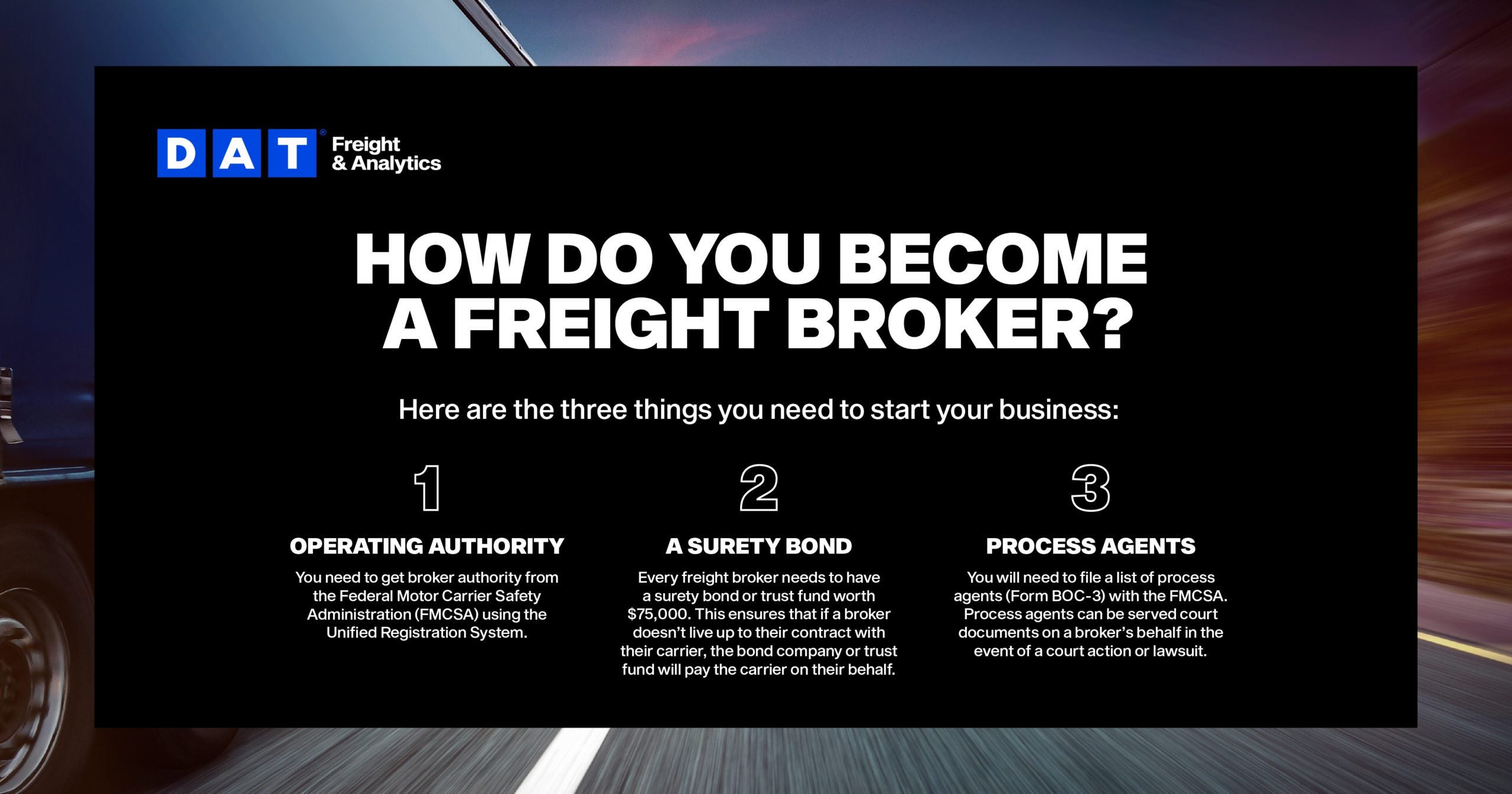How To Become A Logistics Broker

Imagine a bustling port, containers stacked high like colorful Lego bricks against a grey sky. The air hums with the low thrum of engines, the shriek of forklifts, and the chatter of radios. Yet, behind the organized chaos, a conductor orchestrates the flow – the logistics broker, the unsung hero ensuring goods reach their destination smoothly and efficiently.
Becoming a logistics broker offers a dynamic and rewarding career path for individuals seeking entrepreneurial opportunities within the transportation industry. This article serves as a comprehensive guide, outlining the essential steps and considerations for embarking on this exciting journey, transforming ambition into a thriving logistics brokerage.
Understanding the Logistics Broker Role
What exactly *is* a logistics broker? They are essentially intermediaries, the matchmakers of the shipping world, connecting shippers with carriers to transport freight. Instead of owning trucks or warehouses, they leverage their network and expertise to find the best and most cost-effective transportation solutions.
Think of them as travel agents, but for cargo. They negotiate rates, manage paperwork, track shipments, and ensure compliance with regulations, all while providing exceptional customer service.
The Appeal of Logistics Brokerage
The appeal is multifaceted. It offers the potential for high earnings, flexibility, and the satisfaction of solving complex logistical puzzles. Plus, with the ever-growing demand for efficient supply chains, the need for skilled logistics brokers continues to rise.
E-commerce, global trade, and just-in-time inventory management all fuel the demand. According to a report by Statista, the global logistics market is projected to reach trillions of dollars in the coming years, highlighting the immense potential for growth in this sector.
Steps to Becoming a Logistics Broker
The path to becoming a licensed logistics broker requires dedication, education, and a strategic approach. Let's break down the key steps involved.
1. Education and Industry Knowledge
While a specific degree isn't mandatory, a background in business, supply chain management, or transportation can provide a solid foundation. Consider online courses, workshops, and industry conferences to gain a deeper understanding of logistics principles.
Familiarize yourself with key industry terms, regulations, and best practices. The more you know, the better equipped you'll be to navigate the complexities of the shipping world.
2. Meeting the FMCSA Requirements
The Federal Motor Carrier Safety Administration (FMCSA) regulates logistics brokers in the United States. Obtaining a broker license is mandatory to operate legally.
You'll need to apply for operating authority, obtain a surety bond (typically $75,000), and designate a process agent. Thoroughly research and understand the FMCSA's requirements to ensure compliance.
The surety bond protects shippers and carriers in case of non-payment or breach of contract. Choosing the right surety bond company is crucial; seek reputable and experienced providers.
3. Developing a Business Plan
A well-defined business plan is essential for success. Outline your target market, services offered, pricing strategy, and marketing plan.
Consider your niche – will you specialize in a particular type of freight (e.g., refrigerated goods, oversized loads) or industry (e.g., food and beverage, manufacturing)? Identifying a niche can help you stand out from the competition.
A comprehensive business plan will not only guide your operations but also be invaluable when seeking funding or partnerships.
4. Building a Network
Networking is paramount in the logistics industry. Attend industry events, join online forums, and connect with shippers and carriers.
Building strong relationships with carriers is especially crucial. Develop a reliable carrier base to ensure you can meet your shippers' transportation needs.
Consider joining organizations like the Transportation Intermediaries Association (TIA) for networking opportunities and access to industry resources.
5. Investing in Technology
Technology plays a vital role in modern logistics brokerage. Invest in transportation management system (TMS) software to streamline operations.
A TMS can help you manage shipments, track freight, communicate with carriers, and generate reports. It's an investment that will pay off in increased efficiency and productivity.
Explore different TMS options to find one that fits your needs and budget. Cloud-based solutions offer flexibility and scalability.
6. Marketing Your Services
Once you're licensed and equipped, it's time to market your services. Develop a professional website and create compelling marketing materials.
Utilize online marketing channels, such as social media, search engine optimization (SEO), and pay-per-click (PPC) advertising, to reach potential clients.
Word-of-mouth referrals are also powerful. Provide exceptional service to your clients, and they'll be more likely to recommend you to others.
Challenges and Rewards
Like any entrepreneurial endeavor, logistics brokerage comes with its share of challenges. Competition can be fierce, and managing risk is essential.
Market fluctuations, fluctuating fuel prices, and regulatory changes can impact profitability. Stay informed and adapt to changing market conditions.
However, the rewards can be significant. Successful logistics brokers can build thriving businesses, earn substantial income, and enjoy the satisfaction of contributing to the smooth flow of goods around the world.
The Future of Logistics Brokerage
The logistics industry is constantly evolving. Emerging technologies, such as artificial intelligence (AI), blockchain, and the Internet of Things (IoT), are transforming the way freight is moved and managed.
AI can automate tasks, optimize routes, and improve decision-making. Blockchain can enhance transparency and security in supply chains.
Staying abreast of these technological advancements is crucial for logistics brokers to remain competitive and provide innovative solutions to their clients.
Furthermore, sustainability is becoming increasingly important. Shippers are seeking eco-friendly transportation options, and brokers who can offer sustainable solutions will have a competitive edge.
Conclusion
Becoming a logistics broker is a challenging but rewarding journey. It requires dedication, knowledge, and a willingness to adapt to the ever-changing landscape of the transportation industry.
By following the steps outlined in this guide, aspiring brokers can lay a solid foundation for success. Embrace the challenges, leverage technology, and build strong relationships, and you'll be well on your way to a fulfilling and prosperous career.
The world of logistics awaits – are you ready to take the helm and steer your course to success?


![How To Become A Logistics Broker How to Become a Freight Broker [Ultimate Guide for 2025] - ZipBonds](https://zipbonds.com/wp-content/uploads/2023/05/What-Is-a-Freight-Broker.jpg)















